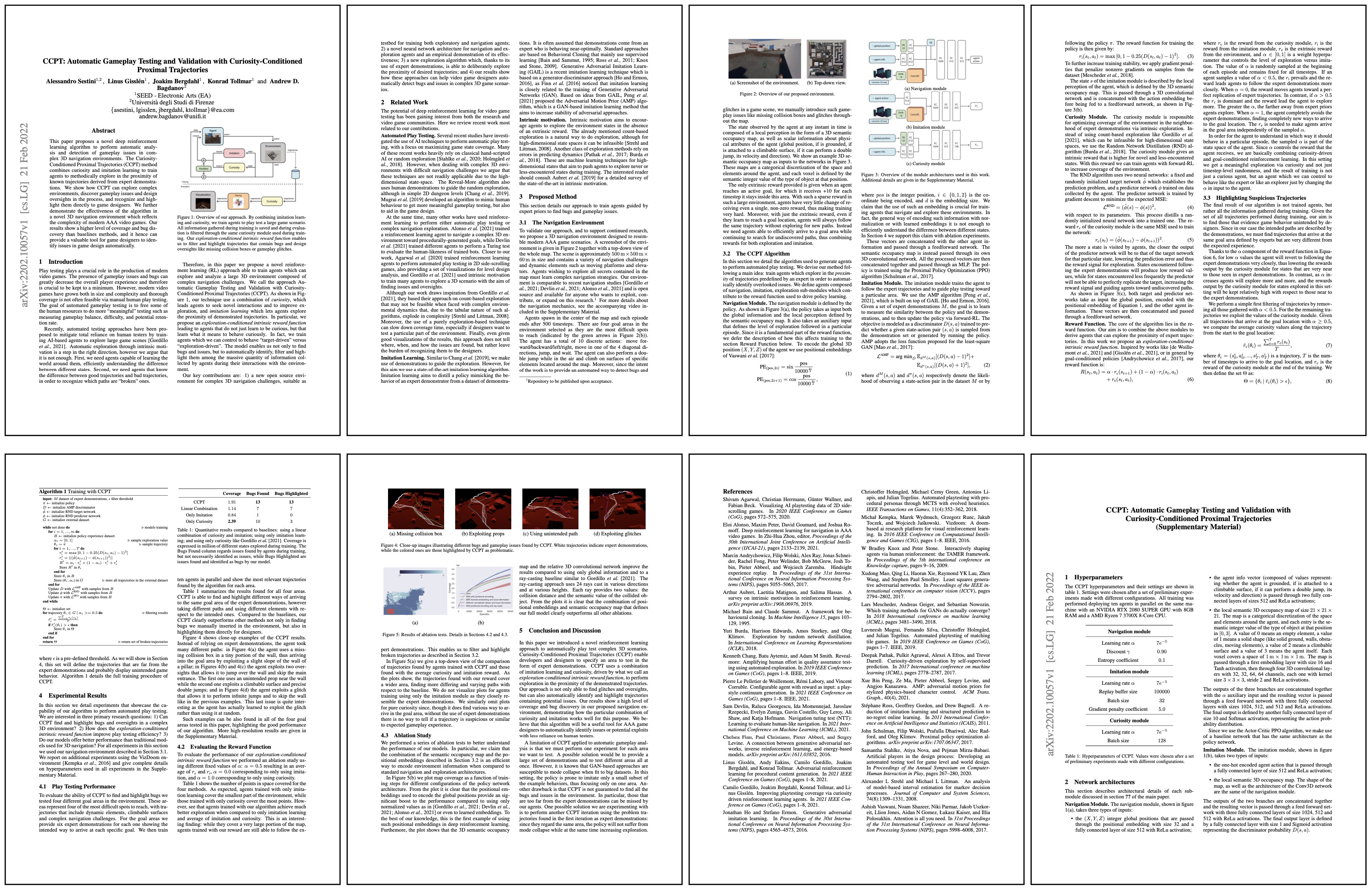Automatic Gameplay Testing and Validation with Curiosity-Conditioned Proximal Trajectories

What if you could train a bot to explore a game map with human-like curiosity?
This research paper proposes a novel deep reinforcement learning algorithm to perform automatic analysis and detection of gameplay issues in complex 3D navigation environments. The Curiosity-Conditioned Proximal Trajectories (CCPT) method combines curiosity and imitation learning to train agents to methodically explore in the proximity of known trajectories derived from expert demonstrations. We show how CCPT can explore complex environments, discover gameplay issues and design oversights in the process, and recognize and high- light them directly to game designers.
We further demonstrate the effectiveness of the algorithm in a novel 3D navigation environment which reflects the complexity of modern AAA video games. Our results show a higher level of coverage and bug discovery than baselines methods, and it hence can provide a valuable tool for game designers to identify issues in game design automatically.
Check out the video above and read the paper below.


